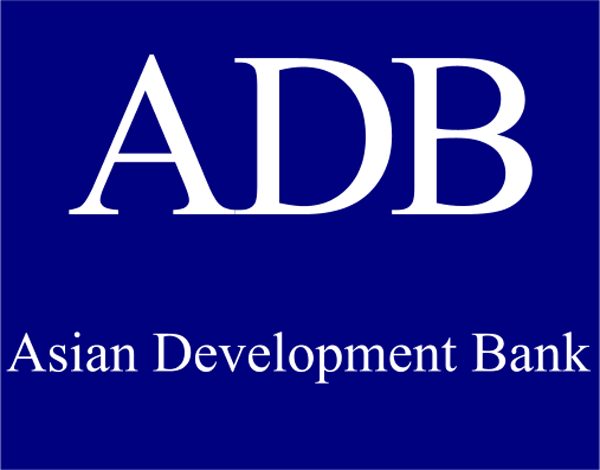ISLAMABAD: The Asian Development Bank disbursed record $2.4 billion loans and grants, including $1.8 billion in programme lending and $634.3 million in project lending, to Pakistan during the year 2019.
The ADB provided $1.8 billion in policy-based loans, including $1billion in immediate budget support to shore up the country’s public finances and $500 million to improve trade competitiveness.
According to the data issued by the ADB, it also provided additional financing of $200 million to help support the Benazir Income Support Programme (BISP) — part of the government’s flagship Ehsaas Poverty Alleviation Strategy, aimed at reducing inequality and investing in economically disadvantaged people.
The ADB approved a $235 million loan to Sindh in 2019 to help develop a bus rapid transit (BRT) system with innovative energy and climate resilience features in Karachi, Pakistan’s largest and most populated city. The bank also approved a $75 million project to enhance secondary education in the Sindh province.
To help strengthen project readiness prior to approval, the bank approved project readiness financing totaling $17.3 million in 2019 for the “Cities Improvement Project” in Khyber Pakhtunkwa and the “Water Resources Project” in Punjab. In agriculture, the ADB accorded approval for utilising surplus loan proceeds of $21 million for a major change in scope of Trimmu and Panjnad barrages, adding Islam Barrage, while work on Jalalpur Irrigation Project was initiated with $275 million financing.
During the year 2019, the ADB also approved a grant of $5.1 million for enhancing Punjab technology-based agriculture and marketing, market development and preparing Kurram Tangi Integrated Water Resources Development Project. In the energy sector, the ADB maintained its strong presence with an ongoing portfolio of $2.2 billion covering energy generation, transmission, distribution, energy efficiency, renewable energy development, and analytical tools and advisory assistance.
The ADB committed a $300 million policy-based loan that will help Pakistan to address financial sustainability, governance, and energy infrastructure policy constraints. The bank’s ongoing portfolio in the transport sector totals $2.5 billion and spans urban corridors, border crossing points, greenfield motorways and expressways, and existing national and provincial highways.
In 2019, the ADB committed a $75 million loan to widen and upgrade 4 2 kilometers of the busy Mardan–Swabi road in the Khyber Pakhtunkhwa. During the corresponding period, the ADB successfully completed the Flood Emergency Reconstruction and Resilience Project, under which 1,740 kilometer of provincial highways and districts roads were rehabilitated and repaired in 20 flood-affected districts of Punjab.
Another 204 kilometer of major roads were rehabilitated, and 75 kilometer of district roads were repaired in the three districts. About 800 hectares of landslide area was stabilised in the three northern districts using bio-engineering measures.
The project also rehabilitated 90 percent of the flood protection infrastructure. Two new flood protection dykes were built along both banks of the Jhelum River with a cumulative length of about 7,300 meters. The project also developed the safety inspection manuals for dams and flood protection infrastructure.
The ADB is also actively supporting Public Private Partnership initiatives of the provinces and the federal government to support the delivery of public infrastructure with private sector participation, along with development of effective fiscal risk management functions.
Furthermore, the ADB is implementing two loans of $100 million each for Sindh and Punjab, with a co-financing grant from Department of International Development (DFID), Government of the United Kingdom.
In 2019, the ADB helped complete the125 kilometers Motorway M4 (Gojra-Khanewal section). The ADB-administered M4 project was co-financed with Asian Infrastructure and Investment Bank (AIIB), alongside grant co-financing from the DFID. This was AIIB’s first-ever project. The Pakistan National Transport Policy and Master Plan supported by ADB and DFID was officially launched following its approval by the federal cabinet in 2018, and Road Safety and Road Asset Management secretariats promoted under the National Transport Policy were established.
The ADB secured financing of $49 million ($37 million loan and $12 million grant) from the Green Climate Fund — supplementing a proposed loan of $435 million; $235 million was from the ADB and $100 million each from the Asian Infrastructure Investment Bank (AIIB) and Agence Française de Développement — to build a 26.6-km state-of-the-art BRT system in Karachi. Commitments in non-sovereign operations funded by ordinary capital resources for the period 2007 to 2019 totaled $767 million, with $15 million committed in 2019.
A $15 million loan to Kashf Foundation was signed in August for the Expanding Access to Credit for Women Project. The funding will support Kashf Foundation’s lending to low-income women, female micro- and small entrepreneurs and low-cost schools in Pakistan.
The ADB’s Trade Finance Programme (TFP) fills market gaps by providing guarantees and loans through partner banks in support of trade. In Pakistan, the TFP works with 13 banks and has supported $16.03 billion in trade and 5,159 transactions as of November 2019 – 52.9 percent of the $16.03 billion was co-financed by the private sector. The Supply Chain Finance Programme has supported $0.88 million in trade over five transactions as of November in Pakistan and mobilised $0.44 million in co-financing.
























